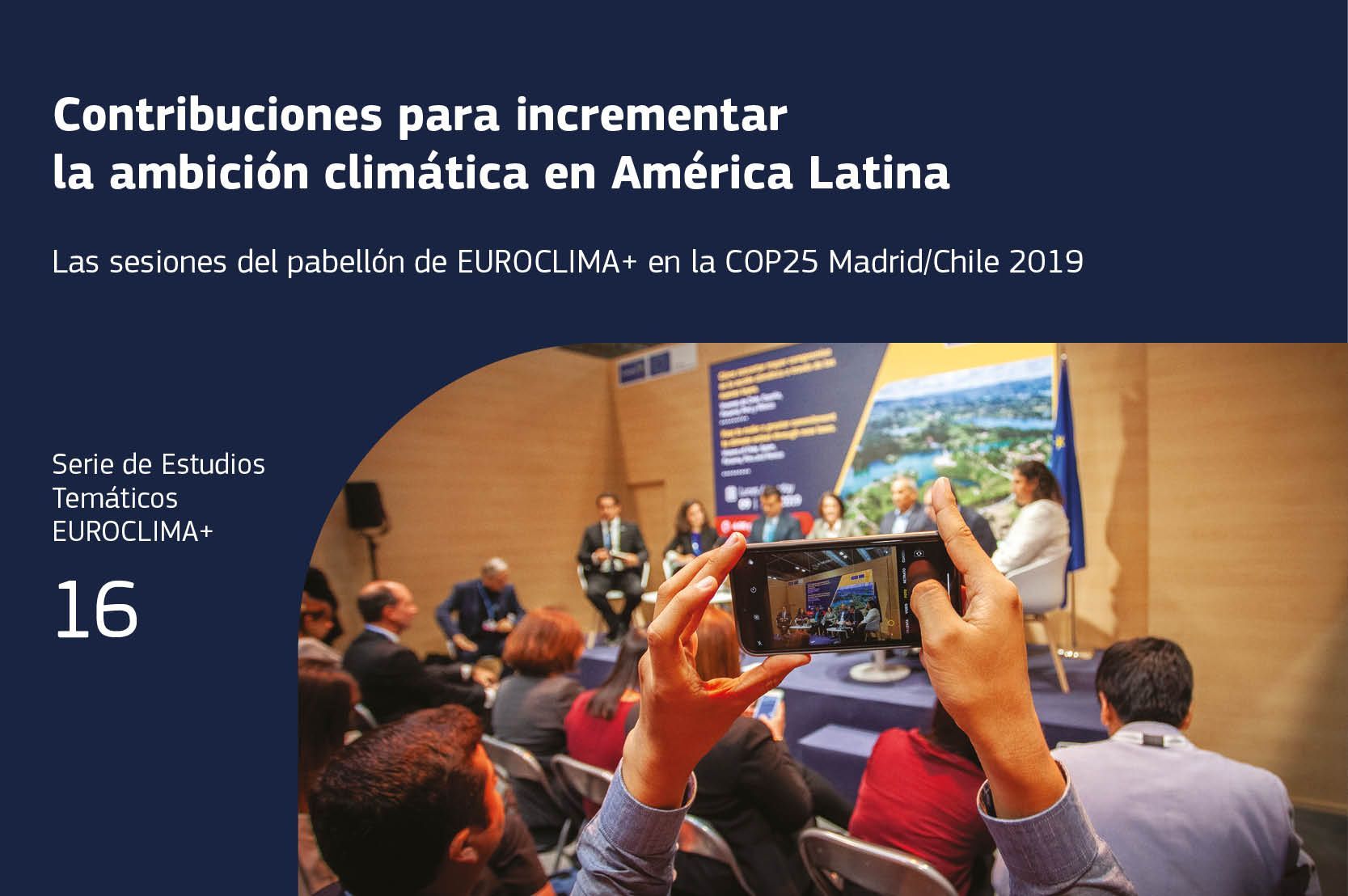Learning from experiences, exchanging lessons, and sharing innovative initiatives are key actions to help accelerate action to combat climate change.
March 11, 2021. Brussels, Belgium. Learning from experiences, exchanging lessons, sharing innovative initiatives, are fundamental actions to help accelerate actions to combat climate change. For this reason, the EUROCLIMA+ Programme implemented its own Pavilion at COP25 Madrid/Chile, bringing together more than 200 speakers from some thirty countries, and gathering a thousand people in the audience for two weeks.
Programmes such as EUROCLIMA+ are relevant when it comes to building bridges between continents, countries, and institutions, supporting public policies and articulating actors and experiences in the territory. Throughout the 43 sessions held there, useful conclusions and recommendations for the countries of Latin America and the Caribbean were discussed, analysed and developed.
- There was a central theme: the need to involve all actors, sectors, and levels of action in measures to combat climate change. In order to move in this direction, it is necessary to promote channels for adequate participation and coordination mechanisms between actors.
- The Escazú Agreement has been emphasised as a key mechanism to be considered in the region to inform and protect the most affected territories, their biodiversity and the communities living there.
- The need for legislative development on climate change at the highest level in the regulatory hierarchy, with an assurance of permanence and a long-term vision, was another of the points highlighted.
- The energy and transport sectors are central to progress in the decarbonisation of Latin American economies. The countries of the region have taken this on board in their public policies.
- Nature-based solutions (NbS) receive only 3% of climate financing, yet they provide a third of the solution to restore and preserve carbon sinks, while contributing to adapting to the consequences of global warming.
- Food production, resilience of local communities and risk management are three components that were present throughout different panels held at the Pavilion, showing that they are closely related when working on climate change adaptation in the region.
- Concrete actions in the territory must take cities and citizens into account. Seventy per cent of Latin America's population is urban and 70% of the region's emissions are associated with cities. Land-use planning makes it possible to guide the urbanisation of the city with criteria of environmental sustainability and social inclusion.
- The challenge, at the end of the day, is to transform our economies and redefine the long term, taking into account the framework of the 2030 Agenda and the Paris Agreement. Public and private investment are key elements for this change in productive processes to achieve a low-emission, resilient and inclusive model for the entire population.
In the context of the current global health crisis, and considering the actions to be taken at COP 26 for confronting the climate emergency, the conclusions of the events held at the EUROCLIMA+ Pavilion at COP25 are of particular relevance for designing the priorities on which to hold strategic dialogues next November in Glasgow.
The successful experience of the Pavilion has motivated the European Commission to propose its replication at COP26 in Glasgow, inviting once again the countries of Latin America and the Caribbean to come together to discuss and make progress with the European Union on moving towards a better, more sustainable, and resilient world under the framework of a sustainable recovery that leaves no one behind.
About EUROCLIMA+
EUROCLIMA+ is the European Union's flagship programme for cooperation with Latin America, funded by the European Union and co-financed by the German federal government through the Federal Ministry for Economic Cooperation and Development (BMZ), as well as by the governments of France and Spain. It aims to reduce the impact of climate change and its effects in the region by promoting climate change mitigation and adaptation, resilience, and climate financing.
It is implemented in 18 countries in Latin America and the Caribbean under the synergistic work of seven agencies: the Spanish Agency for International Development Cooperation (AECID), the French Development Agency (AFD), the Economic Commission for Latin America and the Caribbean (ECLAC), the German Society for International Cooperation (GIZ), Expertise France (EF), the International and Ibero-America Foundation for Administration and Public Policies (FIIAPP), and the UN Environment Programme.
More information:
Guillermo Dascal, expert on climate change
This email address is being protected from spambots. You need JavaScript enabled to view it.

